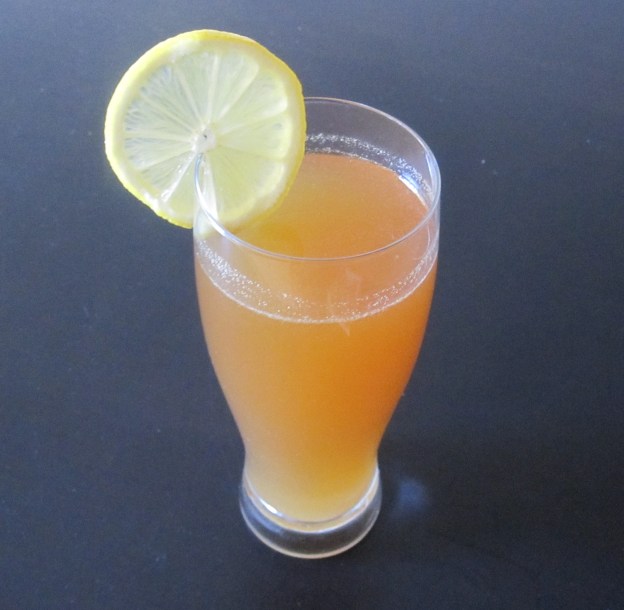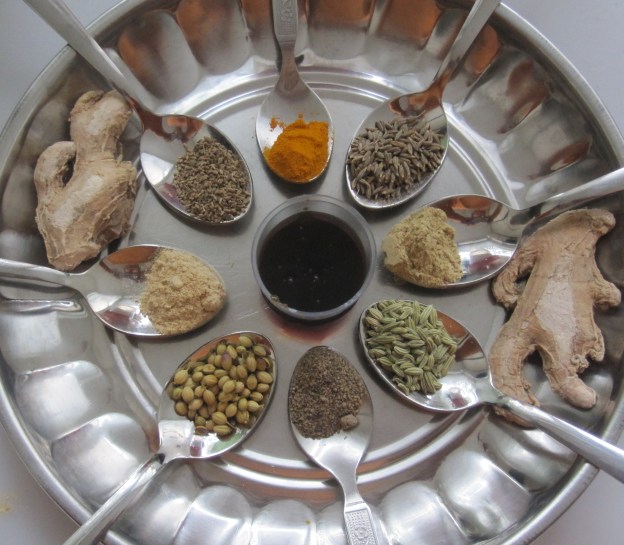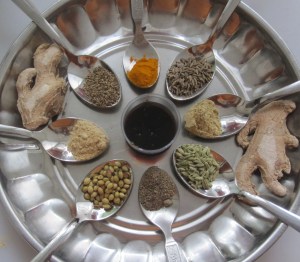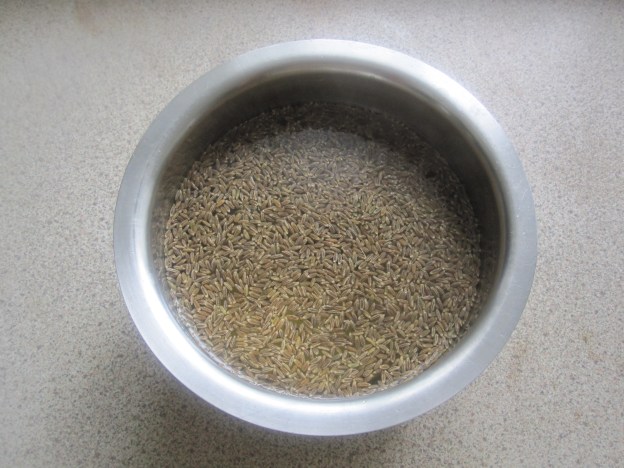The word Paanakam always reminds me of Sashti. Sashti is the sixth day of new moon and the sixth day of the full moon. Lord Murugan, the God of the Tamils is worshipped specially on Sashti day. Every month has its Sashti days. Lord Murugan is worshipped with special poojais in temples and people fast on those days. Skandha Sashti is the one of the biggest worship days of Lord Murugan, which falls in the month of Aippasi (October-November). It is Murugan defeating the demon Surapadhman or in simple terms – victory of good over evil. Murugan is also called Skandan, so this is skanda sashti!
The defeat of Suran by Lord Murugan is commonly known as Surasamharam – ofcourse a Sanskrit word. In Tamil, we call it Suran Thalai Vettu – colloquially. It actually means Chopping Suran’s Head.
The war is re-enacted in all six major Murugan temples – arupadai veedu- in tamil. Tiruchendhur, near my home towns Tirunelveli and Thoothukkudi is the shore temple where the battle is believed to have happened in pre-historic times. This temple and sashti are therefore very close to my heart. It is in Tiruchendhur that the fierce battle of the demon in various forms and Lord Murugan is re-enacted in a very big scale. http://murugan.org/temples/tiruchendur2.htm
Skanda Sashti Day falls on 31st October 2011.
Not getting into too many religious notes, Skanda Sashti Viradham or Fast always ends with Paanakam – the Lemon and Jaggery energy drink. The fast lasts for six days, starting from the first day of the new moon in the tamil month of Aippasi – starting mostly on the day after Deepavali. Having just one meal of rice and coconut chutney and fruits as breakfast and banana and milk for dinner, I used to very religiously observe viradham/fast when in school. The elders would have a stricter fasting rule. Paanakam also used to be my thirst quencher at school. The sixth day would go without any meal and just fruits and liquids with jaggery – coffee with jaggery and no sugar allowed. At night, the time when ‘surasamharan – the defeat’ is completed at Tiruchendhur temple, we would do special poojai for Murugan at home in Chennai, and have a cold shower – a compulsory hair wash – then open the fast with Paanakam. The hair wash symbolises getting rid of all evil physically and mentally – with the defeat of the demon. The Paanakam specially at that moment, would taste like real amutham – the nectar of the Gods – running down cool into the starving tummy! This is supposed to be an instant energy drink specially after a fast.
It doesn’t mean we start having our meal after Paanakam. It is only Paanakam and fruits for the night. After defeating the demon, Lord Murugan marries Devayanai the next day – it is called the Thirukkalyanam – or the sacred marriage. After six days of fasting, every family has a feast on Lord Murugan’s marriage – with six kinds of mixed rice delicacies – Kalavai Saadham or Viragina Saatham which literally means mixed rice. Some also call it Chitrannam. Lemon Rice, Tamarind Rice, Coconut Rice, Ven Pongal (salted rice and lentil), Sarkkarai Pongal (sweetened jaggery rice) and seasoned yoghurt rice are the six varieties – some might also substitute with other mixed rice varieties (would be posted shortly). We wait for the morning to come, have a hair wash – the auspicious day being the wedding day – stand in for the poojai – and just get ready to have the special wedding feast meal on Banana leaf! (For more on Banana Leaf Meal read – https://dosaikal.com/2011/10/14/thamizhar-virundhu-feast-of-the-tamils/)
Belief in God or No belief in God – doesn’t matter.. The culture of accepting Gods to be one in the family and feeling oneself part of HIS family just fascinates me!
Now to Paanakam! Not only on special occasions, this drink can be had anytime, anywhere.
Paanakam
the south indian lemonade!
Ingredients (makes 2 glasses)
- vellam- powdered/grated jaggery – 1/2 cup
- elumicham pazham/juice of one lemon
- Elakkai podi/cardamom powder – 1/2 tsp
- chukku podi/dry ginger powder – 1/2 tsp
- salt – a pinch
- water – as required
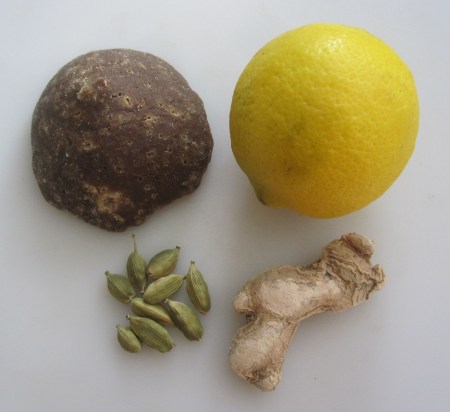
Method of Preparation
- Dissolve jaggery in water
- Strain the liquid for mud in jaggery
- Mix cardamom powder and dry ginger powder
- Add the lemon juice
- Add a pinch of salt
- Check for taste and add water if required
- Add more jaggery or lemon juice as preferred
- Paanakam is ready.
Note:
- Jaggery provides glucose and therefore the body gets instant energy
- Cardamom powder re-vitalises the taste buds
- Dry ginger induces hunger; It also helps in digestion, especially after a fast
- I have used palm jaggery instead of sugarcane jaggery
- More on sugarcane jaggery and palm jaggery – read https://dosaikal.com/2011/08/26/aval-sarkkarai-pongal-rice-flakes-jaggery-pongal/.

